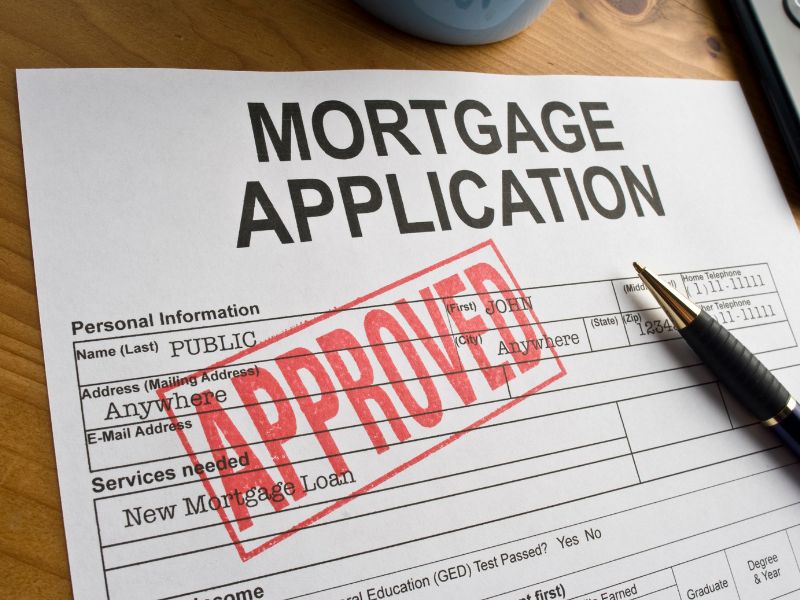 When thinking about homeownership, a perfect credit score often seems like the golden ticket. But what if your credit history isn’t picture-perfect? Don’t worry; buying a home with bad credit is still within reach. With careful planning and strategic moves, you can turn your dream of homeownership into a reality. Here are some valuable tips and insights to guide you through the process:
When thinking about homeownership, a perfect credit score often seems like the golden ticket. But what if your credit history isn’t picture-perfect? Don’t worry; buying a home with bad credit is still within reach. With careful planning and strategic moves, you can turn your dream of homeownership into a reality. Here are some valuable tips and insights to guide you through the process:
1. Know Your Credit Score Inside Out
Before plunging into the homebuying journey, arm yourself with knowledge about your credit score. Request a copy of your credit report from all three major credit bureaus—Equifax, Experian, and TransUnion. Review these reports thoroughly to identify any errors or discrepancies that could be dragging your score down. Rectifying inaccuracies can give your credit score a significant boost.
2. Understand Your Options
Having bad credit doesn’t necessarily mean you’re out of options. Research various home loan programs tailored for individuals with less-than-perfect credit. FHA (Federal Housing Administration) loans, for instance, are accessible to borrowers with credit scores as low as 500 with a 10% down payment or 580 with a 3.5% down payment. Keep in mind that the FHA sets this limit, but individual lenders may require a higher score. Explore alternative lenders or credit unions that might offer more flexibility in lending criteria.
3. Build Up Your Savings
While a hefty down payment can mitigate the impact of bad credit, it’s not the only financial aspect to consider. Lenders often scrutinize your savings and assets to gauge your financial stability. Prioritize building up your savings to demonstrate your ability to handle homeownership responsibilities. Aim to have a healthy emergency fund in place to cover unexpected expenses post-purchase.
4. Consider a Co-Signer or Joint Application
If your credit score falls below the lender’s threshold, consider enlisting the help of a co-signer with a stronger credit profile. A co-signer essentially guarantees the loan and shares responsibility for repayment. Alternatively, explore joint applications with a spouse, partner, or family member to combine incomes and improve your overall financial standing in the eyes of lenders.
5. Improve Your Credit Score Before Applying
Patience can be a powerful tool in your homeownership journey. Take proactive steps to improve your credit score before applying for a mortgage. Pay down existing debts, make timely payments on all bills, and avoid opening new lines of credit. These actions demonstrate financial responsibility and can lead to a gradual increase in your credit score over time.
While bad credit may present challenges on the path to homeownership, it’s not an impossible obstacle. Armed with knowledge, determination, and strategic planning, you can navigate the homebuying process with confidence. Remember, the journey to owning your dream home may have its twists and turns, but with perseverance and the right approach, you can turn your homeownership dreams into reality. Give us a call today to see how we can help!
 Obtaining a mortgage can seem to be filled with perplexing terms and concepts. Don’t worry, though – we’re here to decode the complexities and make it easy for you to navigate the mortgage landscape with confidence. Let’s break down some of the most common and confusing terms in simple, easy-to-understand language.
Obtaining a mortgage can seem to be filled with perplexing terms and concepts. Don’t worry, though – we’re here to decode the complexities and make it easy for you to navigate the mortgage landscape with confidence. Let’s break down some of the most common and confusing terms in simple, easy-to-understand language. There are few things better than finding your dream home and being able to afford it, but simply because you’ve found the perfect place doesn’t mean you should stretch the truth. It might seem tempting to polish your mortgage application a little in the hopes of making a better impression, but here are a few reasons why you should stick to the truth when signing off on your home.
There are few things better than finding your dream home and being able to afford it, but simply because you’ve found the perfect place doesn’t mean you should stretch the truth. It might seem tempting to polish your mortgage application a little in the hopes of making a better impression, but here are a few reasons why you should stick to the truth when signing off on your home. Do you ever dream about a larger, roomier, or more luxurious living space? Or perhaps just want to experience the joy of owning your own home and building your net worth instead of renting? Let’s explore a few questions that can help to answer whether or not you’re ready for a new lifestyle as a homeowner.
Do you ever dream about a larger, roomier, or more luxurious living space? Or perhaps just want to experience the joy of owning your own home and building your net worth instead of renting? Let’s explore a few questions that can help to answer whether or not you’re ready for a new lifestyle as a homeowner. If you have purchased a new home and are going to move in soon, what are the first few things that you will need to do upon moving into your new home?
If you have purchased a new home and are going to move in soon, what are the first few things that you will need to do upon moving into your new home? New homes can be scary. But when you take the time to think about it and plan ahead, maintaining a home is easier than you think a manageable mix of experience and common sense. Here are five skills that will help maintain your new home for years to come.
New homes can be scary. But when you take the time to think about it and plan ahead, maintaining a home is easier than you think a manageable mix of experience and common sense. Here are five skills that will help maintain your new home for years to come. When delving into the world of real estate and investment property, there are many terms that will come up that require further explanation. Whether you’ve never heard the phrase ‘home equity’ before or you have a little familiarity, here are the ins and out of what it means and how this asset can help your financial outlook.
When delving into the world of real estate and investment property, there are many terms that will come up that require further explanation. Whether you’ve never heard the phrase ‘home equity’ before or you have a little familiarity, here are the ins and out of what it means and how this asset can help your financial outlook. If you’re worried about your bad credit, you’ll want to do everything in your power to improve your rating as quickly as possible – especially if you have a major purchase coming up. Improving your credit rating can give you access to better interest rates on mortgages or even help you to get that job you’re after.
If you’re worried about your bad credit, you’ll want to do everything in your power to improve your rating as quickly as possible – especially if you have a major purchase coming up. Improving your credit rating can give you access to better interest rates on mortgages or even help you to get that job you’re after.